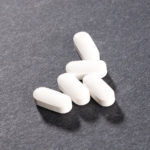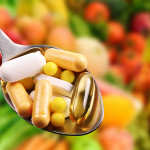By David Blyweiss, M.D.
For years, doctors have been lecturing their patients about the evils of cholesterol. High is bad, especially if your total cholesterol tops 200 mg/dL and your low-density or LDL cholesterol is over 130 mg/dL. To talk to most physicians—including cardiologists—the higher your cholesterol, the closer you are to a guaranteed heart attack. But that may not be accurate.
In fact, it seems that cholesterol is one of the most misunderstood molecules on the planet. It’s been so successfully demonized that lowering its numbers is a multibillion dollar business, with more than $20 billion a year generated just by the two top cholesterol-lowering medications, Zocor and Lipitor.
But recent research has started to question whether we really need to be obsessively concerned with our cholesterol levels. The truth? Cholesterol levels are a lousy predictor of heart disease. A large percentage of people with normal cholesterol have cardiovascular disease—and half of those who have a heart attack (where in 50%, the first sign is their sudden death from that heart attack) have “normal” cholesterol.
MD Exposes the Hidden Danger to Your Eyes

When your eyesight starts to fail, it's a real problem. Suddenly you can't go to the grocery store... you can't get to the doctor if you have an emergency... you can't meet your friends for dinner…
Your "regular" doctor doesn't have time to keep up with the latest research. And the same goes for eye doctors. They go to school to learn how to fit you for glasses and contacts, but have no way of preventing the damage and loss of eyesight that threatens your freedom and independence.
Let me show you something that explains a LOT about how your eyes work.
In my FREE Special Report, I'll show you a HUGE, untapped resource for your eyes that safely and naturally restores clear, effortless eyesight.
Click here to get started...
Consider a classic study conducted in the Rhone-Alpes region of France over a four-year period. The study—called the Lyon Diet Heart Study—looked at 605 smokers who had already had a heart attack and who had classic risk factors, including high cholesterol. Roughly half were directed to eat a diet lower in fat and cholesterol. The other half followed a Mediterranean diet high in olive oil, vegetables and fruit. Neither group was given a statin drug. Those following the Mediterranean diet had a 72 percent decrease in coronary events and a 56 percent decrease in overall mortality. But here’s what’s really interesting—their cholesterol levels hardly budged.
Other studies have shown similar results. For example, the Nurses Health Study—one of the longest-running and most respected studies on diet and health outcomes—found that five basic behaviors reduce the risk of heart disease by an astonishing 82 percent. The five behaviors? Maintaining a healthy weight, exercising regularly, eating a diet rich in omega-3 fats (particularly from fish) and fruits and vegetables, drinking alcohol only moderately, and not smoking. Lowering cholesterol wasn’t even mentioned.
Don’t get me wrong—cholesterol still matters…just not in the ways you’ve been led to believe. It makes up every cell membrane and hormone in our body. Without it we’re not us. What’s more, you can’t simplify the type of cholesterol into either good or bad with no middle ground. There are several subtypes of both good (HDL) and bad (LDL) cholesterol. The subtypes of LDL are far more meaningful than the overall LDL number. Some LDL molecules are large particles—these are fairly harmless. The small ones, however, are not. So it’s no longer enough to know that your “bad” cholesterol has gone up. More cutting-edge physicians are testing for subtypes of LDL.
The World's Quickest Solution for Ending Prostate and Urinary Misery
This has recently been revealed to be one of the only real breakthroughs in prostate health.
The seeds of a strange fruit (sometimes called "Chinese Apples") hold powerful phytonutrients that are a revolution in prostate health.
In fact, UCLA and Veterans Administration research have now proved this to be true.
Not only that, but it may be the worlds quickest solution for ending prostate misery.
Simply stated, these phytonutrients represent a huge step beyond beta sitosterol, saw palmetto, and other phytosterols alone.
Simply click HERE if you want to have fast prostate relief...restful, uninterrupted sleep...no more constant "urges to go"...enhanced virility...and optimal prostate support for life.
Ratio also matters. Even if you have borderline high LDL levels, having high HDL can offset some of the risk. One way to boost your HDL levels is with niacin. A growing number of studies show that, combined with a heart healthy diet and exercise, taking supplemental niacin can significantly increase your HDL cholesterol levels. It also reduces arterial plaque. In one landmark study of 136 people with high cholesterol, researchers randomly assigned the participants to receive either niacin or a statin drug. While both groups saw benefits, the statin was slightly more effective at lowering LDL cholesterol. But, when it came to HDL, those in the niacin group experienced a 33 percent increase compared to just seven percent for the statin group.
But as good as it is for raising HDL, niacin is even better at lowering lipoprotein(a). Lp(a) are protein compounds that carry fats in the blood. While Lp(a) is a lot like LDL cholesterol, it plays an even greater role in creating the plaque that can narrow your arteries. But one clinical trial found that niacin reduced Lp(a) levels by an impressive 35 percent. And other studies have shown that this nutrient can lower Lp(a) levels even more—up to 38 percent.
The next time your doctor schedules a cholesterol screening, ask him to check the size of your LDL particles, as well as your Lp(a) levels. Based on the results, you may want to consider niacin. Start with a “no flush” variety at bedtime, increasing to twice a day after a few days.
When it comes to reducing your risk of a heart attack, focusing solely on your cholesterol scores won’t protect you. Instead, eat a heart healthy diet, get at least 30 minutes of aerobic exercise every day and take heart healthy supplements like fish oils, coenzyme Q10, magnesium and, yes, niacin. This multi-pronged approach can give your heart the tools it needs to keep beating long and strong.
References:
Ahmed MH. What does the future hold for niacin as a treatment for hyperlipidaemia and cardiovascular disease? Journal of Cardiovascular Medicine (Hagerstown). 2010 Aug 3. [Epub ahead of print]
de Lorgeril M. Mediterranean diet, traditional risk factors, and the rate of cardiovascular complications after myocardial infarction: final report of the Lyon Diet Heart Study. Circulation. 1999;99:779-785.
Pan J. Niacin treatment of the atherogenic lipid profile and Lp(a) in diabetes. Diabetes, Obesity & Metabolism. 2002;4:255-61.






